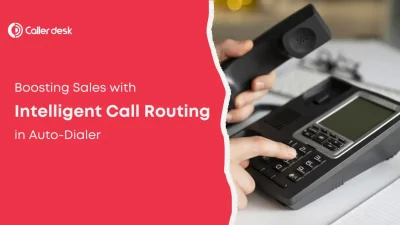If you run a small business, you already know it’s not easy.
You have to do everything—talk to customers, sell your products, manage your team, and try to grow your business.
One big challenge? Marketing.
That means telling people about your business, getting more customers, and making more sales.
But doing all this by yourself can be hard and take a lot of time.
That’s why marketing tools are helpful. These tools make your work easier. They can:
- Post on social media for you
- Send messages or emails to your customers
- Help you find new people who might want to buy from you
- Show what is working well and what is not
You don’t need to be a tech expert to use them. Most of these tools are simple and save you hours of work.
In this blog, we’ll show you the best tools that can help your small business grow faster, talk to customers better, and make more sales—without spending too much money or time.
Why Do Small Businesses Need Marketing Tools?
Running a small business keeps you busy. You’re talking to customers, making sales, and trying to grow. That’s why marketing tools are important.
They act like assistants that help you save time and do more with less effort.
Here’s how they help your business:
- They send follow-up messages automatically, so you don’t miss a chance to talk to a customer.
- They post on social media for you, based on your schedule.
- They help you find new leads and collect customer contact information.
- They show which marketing efforts are working best, so you can focus on what brings results.
- They keep all your customer data in one place, so everything is organized and easy to access.
The best part is that most marketing tools are easy to use—even if you don’t have technical skills.
By using the right tools, you can save time, work more efficiently, and grow your business faster.
11 Best Sales and Marketing Tools for Small Businesses
If you want to grow your business, manage customers better, and sell more without hiring a big team, the right tools can help you do all that with less effort. Here’s a detailed list of must-have tools for small businesses, explained in simple language.
1. SMS Marketing Tools
SMS tools let you send short, personalized messages directly to your customer’s phone. Most people open texts within minutes, which makes it ideal for sending reminders, order updates, promotions, or feedback requests.
For example, a dentist can send appointment reminders the day before a booking or ask for a quick review after a visit. You can also automate replies, schedule texts, and send bulk messages during campaigns. This builds stronger engagement without needing phone calls or emails every time.
2. Email Marketing Tools
Popular Tools: Mailchimp, ActiveCampaign, Constant Contact
Email marketing helps you stay in touch with your audience over time. It’s useful for sending newsletters, announcing sales, sharing business updates, or welcoming new customers.
You can also segment your email list-for example, first-time buyers vs. repeat customers-and send tailored messages. Most tools show you how many people opened your emails and clicked your links, so you know what’s working and what’s not.
3. Social Media Management Tools
Staying active on social media platforms like Facebook, Instagram, and LinkedIn is one of the easiest ways for people to find and connect with your business. But posting every day takes time-and that’s where social media management tools help.
These tools let you plan and schedule posts ahead of time, so your content goes live even when you’re busy or offline. You can create a full week’s content in one sitting and let the tool handle the rest.
Tools like Canva make it easy to design eye-catching posts, banners, and stories—even if you’re not a designer. You can also track how your posts perform by checking likes, comments, shares, and clicks. This helps you understand what your audience likes and improve future posts.
4. CRM Tools – Easily Manage All Your Customer Details
Popular Options: Zoho CRM, HubSpot CRM, Pipedrive
CRM stands for Customer Relationship Management. It’s a tool that helps you keep all your customer information in one place—like their name, phone number, email, past orders, and previous conversations.
With a CRM, you can also:
- Keep track of new leads (people who show interest in your product or service)
- Set follow-up reminders so you never forget to call or message someone
- Assign tasks to team members so everyone knows what to do
- See where each customer is in the sales process
Many CRM tools also work together with your email or SMS software. This means you can send updates, offers, or follow-ups directly from your CRM—making it faster and more personal to connect with your customers.
5. Lead Generation Tools – Attract New Potential Customers
Popular Options: CallPage, AeroLeads,
These tools help you collect contact details from people who visit your website or show interest in your products. You can add pop-ups, lead forms, or instant callback buttons to turn visitors into leads.
For example, CallPage allows site visitors to request a callback in seconds, which means you can talk to interested people before they forget or move on. AeroLeads can even help you find verified email addresses and phone numbers for B2B outreach.
6. SEO and Website Analytics Tools – Help People Find You on Google
Popular Tools: Google Analytics, SEMrush, Ahrefs
If you want more people to visit your website, your business needs to appear on Google when someone searches for what you offer. SEO tools help you understand how to improve your website so it shows up in those search results.
These tools can tell you which keywords people are searching for, which pages on your website get the most visitors, and where those visitors are coming from, like Google, social media, or other websites.
Google Analytics shows how people use your website. You can see which pages they visit, how long they stay, and what they click on. This helps you know what’s working and what needs improvement.
SEMrush and Ahrefs give more detailed help. They show you which keywords to use, help you fix SEO problems on your site, and even let you see what your competitors are doing. This helps you rank higher in search results and bring more people to your website without paying for ads.
7. Landing Page Builders
Top Tools: Unbounce, Leadpages
A landing page is a simple web page with a clear message and one action—like booking a service or signing up for a free trial. These tools help you build such pages without needing to code or hire a web developer.
You can create different landing pages for different campaigns and track which ones bring the best results. It’s great for collecting leads, promoting offers, or running ad campaigns.
8. Appointment Scheduling Tools
Recommended Tool: Calendly
With scheduling tools, customers can pick a time that works for them without calling or messaging you. Calendly shows your available slots and automatically sends confirmation and reminder messages.
It connects with Google Calendar or Outlook, so your meetings are always in sync. This works great for consultants, freelancers, trainers, or any business that books appointments or demos.
9. Automation Tools – Save Time on Repetitive Tasks
Popular Tool: Zapier
Instead of doing the same things manually every day, automation tools like Zapier help you connect your apps and create workflows. For example, if someone fills a form on your website, Zapier can add that person to your CRM and send a welcome email instantly.
You can set up dozens of automated tasks without writing a single line of code. It’s like having a virtual assistant working for you in the background.
10. Online Advertising Tools
Best Tools: Google Ads, Facebook Ads Manager
If you want fast results, paid ads help you reach people who are most likely to buy from you. You can target specific groups based on age, interests, location, or online behavior.
Whether you want people to visit your website, call you, or fill out a form, these tools let you track clicks, conversions, and ad performance in real-time. They also help you control how much you spend each day.
11. Webinar and Outreach Tools – Educate, Connect, and Sell Better
Useful Tools: Demio (for webinars), Hunter (for outreach)
If your product or service needs explanation, webinars are a great way to educate and build trust. You can host live or recorded sessions, answer questions, and build relationships at scale.
Hunter helps you find verified business email addresses, so you can reach out to potential leads directly. Together, these tools help you teach, connect, and sell to the right audience.
How All These Tools Work Together
When small businesses use the right tools together, their sales and marketing become more organized and effective. This is called a multi-channel strategy. Here’s how it works in simple steps:
- Start with SEO and ads to bring people to your website. These help new visitors discover your business.
- Use popups or landing pages to collect contact details from those visitors. This is how you turn them into leads.
- Save those leads in your CRM so you can track who they are and what they’re interested in.
- Send emails to share helpful information, build trust, and stay in touch.
- Follow up with SMS when you need quick replies or want to send reminders or offers.
- Use analytics tools to see which marketing activities are working best and where improvements are needed.
- Let customers book meetings using scheduling tools like Calendly, so they can choose a time that works for them.
- Automate simple tasks using tools like Zapier, which connect your apps and save time by doing repetitive work for you.
By combining all these tools, your marketing becomes smoother, faster, and more effective-helping you grow without extra effort.
Conclusion
Growing a small business is tough, but the right tools can make it much easier. Whether you’re trying to get more leads, talk to customers faster, or close more sales, these tools help you save time and get better results.
From SMS and email to CRMs and automation, every tool plays a role in keeping your marketing and sales smooth and effective. You don’t need a big team or a big budget—just smart tools that work well together.
And if you’re looking for a complete calling solution to handle customer calls, track leads, follow up instantly, and boost your response time, CallerDesk is the cloud-based platform built for small businesses like yours.
CallerDesk helps you manage all your business calls in one place with features like IVR, call routing, automated follow-ups, CRM integration, and real-time analytics—so you never miss a lead again.





